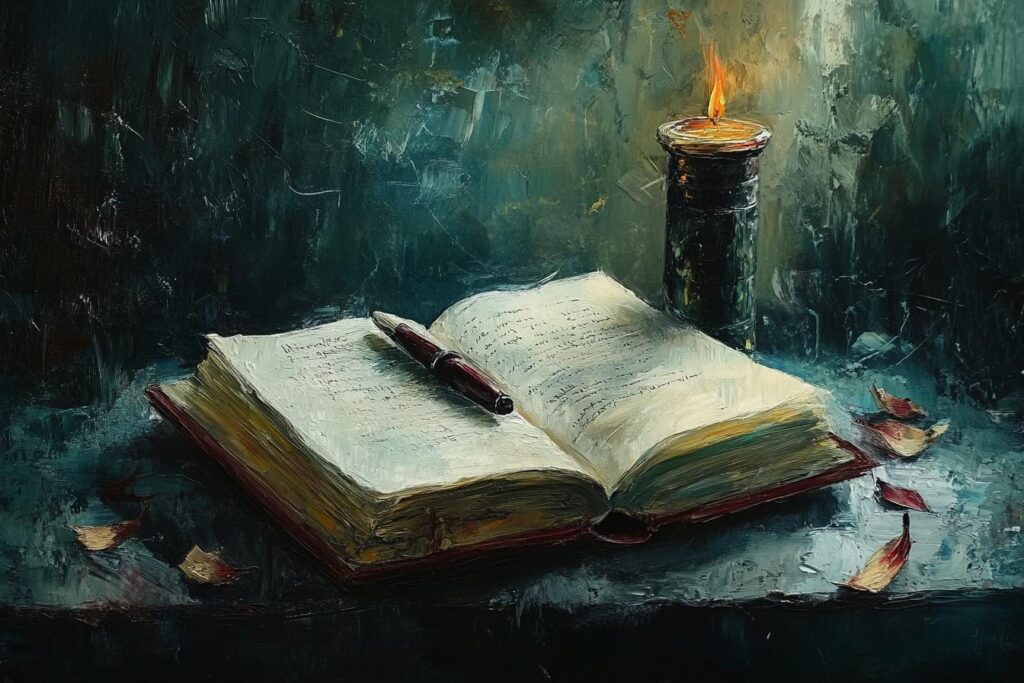Finding inspiration for your next poem can feel like a daunting task, especially when the blank page stares back at you. However, inspiration is not a magical force that descends upon us; it’s a seed that needs nurturing. Sometimes, the best way to spark creativity is to simply open yourself up to the world around you. Have you ever noticed how a seemingly ordinary detail, like the way sunlight filters through leaves, can trigger a rush of emotions and thoughts? Pay attention to these details, to the sights, sounds, and smells that surround you. Carry a notebook with you to jot down these observations. You never know when a fleeting moment will become the foundation of your next masterpiece.
Another powerful source of inspiration lies within your own experiences and memories. Think about your past, both the joyous and the challenging moments. What stories resonate with you? What emotions do you want to explore? Perhaps a childhood memory, a heartfelt conversation, or a personal struggle can serve as the catalyst for your next poem. Don’t be afraid to delve into your own inner world; it’s a rich tapestry of emotions and stories waiting to be shared. For example, a poet might find inspiration in a vivid childhood memory of a summer day spent by the lake, transforming it into a poem about the fleeting nature of time and the power of nostalgia.

1. How to Find Inspiration for Your Next Poem
Sometimes, the blank page stares back at you, a daunting challenge. But finding inspiration for your next poem doesn’t have to be a struggle. Look around you. What grabs your attention? Maybe it’s a flickering candle, the sound of raindrops, or a conversation overheard in a coffee shop. Even everyday objects can spark a poem. Remember, inspiration is everywhere; you just need to open your eyes and ears to it.
Don’t be afraid to experiment. Try writing a poem using a specific form, like a haiku or a sonnet. Or, challenge yourself to write about a topic you normally wouldn’t. You can also revisit old memories, explore new places, or even dive into a fictional world. The key is to be open to possibilities and let your imagination run wild. Who knows what incredible poems await discovery within you?
2. Observe your surroundings
Inspiration can be found in the most ordinary places, so pay attention to your surroundings! Look around you and notice the details. What colors do you see? What sounds do you hear? What smells fill the air? These everyday experiences can spark a creative thought, a powerful image, or a captivating story. Perhaps you see a lone bird perched on a windowsill, its feathers ruffled by a gentle breeze, or maybe you hear the rhythmic tap-tap-tap of rain on your windowpane.
Don’t be afraid to delve deeper into the details. Why is that bird perched there? What is the rain saying? As you explore these questions, your mind will naturally connect ideas and emotions, leading you to a unique and meaningful poem. Even the mundane can become extraordinary when you observe it with a poet’s eye.
3. Reflect on personal experiences
Your life is a treasure trove of stories waiting to be told. Think about the moments that have shaped you, the emotions you’ve felt, and the people you’ve met. A childhood memory, a difficult decision, a moment of joy, or a simple observation can spark a poem. Don’t be afraid to delve into your past, even if it’s painful or embarrassing. It’s often in these experiences that we find the most powerful and relatable themes.
Consider the emotions you felt during these experiences. What did you learn? How did these experiences change you? By exploring the emotional core of your memories, you can tap into the raw material that fuels great poetry. You can also explore how these personal experiences relate to broader themes like love, loss, fear, or hope. This connection allows your poem to resonate with a wider audience.
4. Explore different art forms
Stepping outside your usual artistic comfort zone can spark new ideas. Look beyond poetry and delve into other art forms for inspiration. Visual art, like painting, sculpture, or photography, can offer evocative imagery and emotional depth. Music, with its rhythms and melodies, can stir your feelings and ignite your imagination. Even dance, with its movement and expression, can offer unique perspectives on human experience.
The key is to pay attention to the way these art forms communicate ideas and emotions. How do they use color, form, sound, or movement to tell a story? What feelings do they evoke in you? By analyzing these elements, you can learn to translate them into your own poetic language, creating fresh and original metaphors and imagery.
5. Read other poets work
One of the best ways to ignite your own creative spark is to immerse yourself in the work of other poets. Reading a variety of poets, from different eras and styles, can broaden your understanding of the craft and introduce you to new techniques and perspectives. You may discover innovative ways to use language, structure, and imagery, or find inspiration in the themes and emotions explored by other writers. Think of it as a literary feast for your mind, where you can savor the flavors of diverse poetic voices.
Furthermore, reading other poets can help you develop your own voice. As you encounter different styles and approaches, you can identify what resonates with you and what you want to emulate or avoid. Pay attention to the elements that make each poet unique, such as their use of language, their choice of subject matter, and their overall tone. This process of analysis can help you refine your own style and find your unique poetic voice.
6. Freewriting and brainstorming
Freewriting and brainstorming can be powerful tools for unearthing inspiration. In freewriting, you simply write whatever comes to mind for a set amount of time, without stopping to edit or censor yourself. This can help you unlock hidden ideas and tap into your subconscious. Meanwhile, brainstorming involves generating a list of potential ideas related to a specific topic. You can brainstorm alone or with others, and you can use techniques such as mind mapping or word association to expand your thinking.
Both freewriting and brainstorming can help you move beyond your initial ideas and explore new possibilities. Freewriting can help you to break free from your usual thought patterns, while brainstorming can help you to generate a wider range of ideas. By using these techniques, you can open yourself up to new perspectives and discover unexpected sources of inspiration.
Conclusions
So, there you have it! Finding inspiration for your next poem doesn’t have to be a daunting task. By simply opening your eyes to the world around you, digging into your own experiences, and exploring other art forms, you’ll be swimming in creative ideas in no time. Don’t forget to check out what other poets are doing – it’s a great way to spark your own imagination. And, of course, freewriting and brainstorming are your best friends when you’re feeling stuck. So go ahead, get out there, and let your creative juices flow!

